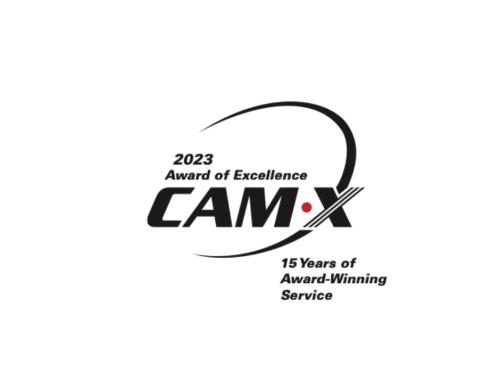You need to outsource customer service to improve your business’s reputation and reach. Also, you can improve satisfaction scores and reviews, so word of mouth is one of your main drivers in the industry.
The right contact center can help you with several tasks, including answering customer queries, maintaining customer records, and more.
The best part? You save your business time and money when you outsource customer service. The good news is that there are plenty of companies out there that offer outsourced customer service at affordable rates.
This means that there’s no reason why you shouldn’t take advantage of outsourcing as soon as possible. If you’re considering outsourcing your customer service, here are some tips to help you get started.
What is Outsourced Customer Service?
Outsourcing refers to several processes or functions a business outsources. For example, FedEx’s supply chain outsources logistics to third-party providers. In addition, many companies across various industries have started to outsource some of their functions related to customer experience management and basic service needs – outsourced customer service.
NBC and Amazon are great examples of third-party hire providers for customer service. While this type of outsourcing is typically reserved for large companies, it can also benefit small businesses. For example, Call Experts can support temporary office staff, hr solutions, or on-call operators.
Outsourcing customer service requires exceptional communication between the company and its provider. Both companies must maintain continuous discussions to ensure expectations are met. Additionally, both parties must be aware of trends and problems that affect their services.
Outsourcing can be like leaving your children in someone else’s hands, so it is essential to ensure that the outsourced team can stay informed about any issues or progress. Outsourcing customer service is not a good decision if you are not prepared to manage the ongoing communication with your outsourced team.
Outsourcing customer service is an excellent option for a growing business. It allows you to concentrate on growing your business and avoiding the adverse effects of low-quality customer service. Outsourcing customer service does not involve cutting corners – it’s about providing the highest service possible.
By delivering top-notch service, you can create an unforgettable experience for your customers and build your brand’s reputation. It’s the best way to attract more loyal customers and improve your business.
How to Outsource Customer Service?
Outsourcing customer service can help businesses reduce costs and increase retention. But it is not a one-size-fits-all solution. It is essential to note that an excellent outsourced contact center has a proven track record of success.
First, decide on the type of customer service you need. Whether you want a full-service, omnichannel, social media-enabled service or part-time, you should know your brand’s needs.
Next, consider a provider that can provide the services you need while giving a human touch. For example, when outsourcing customer service, companies have several options. One option is to use a virtual contact center. Another option is to use a dedicated contact center model like Call Experts. Our agents can be staffed 24 hours daily, trained in our state-of-the-art facility to address your specific needs, and best help your business reduce labor costs.
Most importantly, outsourcing your customer service requires a good understanding of your customers and their needs. You should also choose a capable third-party company that closely monitors the performance of the customer service team you hire.
Make sure that your partner is focused on analytics and provides access to customer service metrics. Outsourcing customer support can be costly, but it is worth the money when you understand your customers better. In addition, customer service metrics provide insight to improve your strategy and service.
Before implementing an outsourced customer service strategy, you should define the objectives you want to achieve with customer service outsourcing.
Create A Process That Offers Customers Results
The customer service process should be as simple as possible. Customers don’t want to spend much time on the phone with you, so keep the process short and sweet.
The best way to prevent this is by creating a process that offers customers results. Here are some questions you should ask yourself as you develop your strategy:
- How do you escalate complaints?
- How do you respond to questions?
- How do you forward messages?
- What happens when someone leaves a message?
You can use a ticketing system for this process, or if you’re starting and don’t have a lot of customers yet, you could use email.
Set up an auto-responder if you are using email, especially an info@ or help@ email. Asks customers to call your 800 number or leave basic information like their name, phone number, and email address so that you can contact them.
Once you’ve collected all the information or tickets created, create a custom follow-up plan based on what they said they needed help with in their initial message.
Finally, after your plan is executed, ensure that you follow up with your customers to ensure they are satisfied and offer additional support if needed.
Partner With A Contact Center
An excellent outsourced contact center should be able to demonstrate its core competencies across various disciplines, including technology, facilities, and human resources. For example, you want to partner with someone that has a robust training program. And agents should be able to provide a high level of service to your customers.
Here are a few more expert tips regarding partnering with a contact center.
Find an Outsourced Customer Service Provider
Finding a provider can be challenging with so many available. Make sure that you pick someone that has the experience you need!
If you’re looking for a provider that specializes in customer service outsourcing, here are some questions to ask:
- Is this outsourced customer service provider certified by the Better Business Bureau? A BBB certification shows that the business has had no complaints filed against it over the last three years. It also means that the company meets specific standards for fair dealings with customers and other businesses.
- Does the outsourced customer service provider offer 24/7 support?
- What is their average call time?
- Are there any extra fees for after-hours or weekend calls?
- Do they have access to multiple phone numbers (e.g., toll-free numbers)? This makes it easier for customers who want to reach you outside business hours.
- What types of tasks will be performed by outsourced agents? Will they handle calls or emails too?
- How many agents do they employ currently? Do they have plans to expand or contract their operations in the coming months?
These are just a few essential considerations; the most important thing is don’t decide on price alone—partner with a company that can help you grow and always be there to offer support.
Set Up Your Account with Them
Many people think that the main issue with outsourcing customer service is that too many people are out there, so it’s hard to find a good match. That may be true, but other things can make finding a partner on your wavelength more challenging.
One of these things is how you set up an account when outsourcing customer service. If you’re not careful about this first step, the rest of your time could be frustrating. You need to know what information to provide and how much to provide.
Here are some tips for setting up an account with a partner:
Take your time during account setup and ensure that your partner has an account setup process. This will help reduce the number of spam messages you receive or people who do not have enough information to interact with you in meaningful ways.
Also, learn about the portal and self-service tools to get answers quickly. Finally, create a unique username and password combination.
Finally, consider how many calls you receive and how you want them answered. Giving your contact center partner this information will save you from many headaches.
Communicate Your Needs Clearly
The better your partner knows what you want, the more likely they’ll hit those goals. Be sure to communicate needs clearly and repeatedly, so everyone involved knows what’s expected of them (and why). A contact center partner will do a better job hitting your goals if you can communicate those goals to the partner.
- How many rings do you want before an answer?
- What are words agents should never use?
- How many calls do you need to be answered?
- What are the goals of this project?
- What does success look like?
- How will we measure success?
- How many customers are being served by the media channel?
- How many orders are being processed in a given time?
- How many calls are being handled per minute?
When setting up a partnership with a contact center, it’s essential to be clear about what you want from the relationship. This way, both parties are on the same page — and it helps prevent any misunderstandings or confusion down the road.
Monitor Performance and Review the Contract Regularly
Your contact center’s performance is only as good as the data you use to measure it. But how do you know if your contact center is performing well?
For example, if your goal is for 80 percent of calls to be answered within 30 seconds, then you can monitor this metric daily to see how well your call center performs. If you’re getting an average of 75 percent over the last six months, that’s great! However, if it goes down below 70 percent for even one day, it’s time to take action. For example, you might need more agents or training for existing staff members.
You should also analyze historical data and compare it with current performance. This will help you identify trends over time to adjust your strategy accordingly.
The best way to evaluate your contact center’s performance is to look at key metrics, such as answer rates, customer satisfaction scores, and customer loyalty. Then compare these measurements against goals you’ve set with your contact center partner.
Why Outsource Customer Service?
Outsourcing customer service has its pros and cons. Often, it is less costly than hiring internal staff, but some customers may feel distant or ignored by a third party. Nevertheless, a few key points should be considered before outsourcing customer service.
A provider should be subject to regular quality checks. This can be achieved through recording calls and KPIs (key performance indicators).
Hiring an in-house customer support team can cost upwards of $28k/yr for CSR per staff member. This cost is not only the employee’s salary but also the cost of training, equipment, insurance, and rent. Not to mention the cost of attrition.
However, outsourcing customer service can save a business a lot of money. With plans starting at $75/mo, Call Experts can help you save money and time.
Not to mention outsourcing customer service gives you the ability to scale up your business while limiting the number of employees.
Conclusion
Outsourcing customer support is an excellent option for smaller businesses. It saves you time and allows you to focus on your core business. Especially for new businesses, time management is essential.
The administrative demands of running a new company can drain a business’s energy. Additionally, an overstretched executive can produce sub-par results. Outsourcing customer support is an excellent choice for businesses overgrowing.
If you need help implementing an effective customer service strategy, contact Call Experts. We’ll be happy to help you make the right decisions to outsource customer service.







